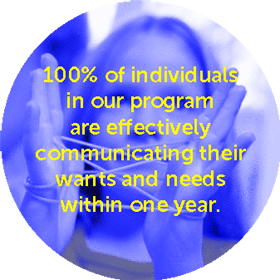Program Summary
Intensive ABA Programs are designed to enable all children with autism to make progress.
This is for children with Autism, ASD (Autism Spectrum Disorder) or other similar disorders, between the ages of 3 and 12, through the range of low to high-functioning autism.
This is a language-based ABA therapy program individually designed for each child. Each program enables critical skills in multiple domains (language, cognition, social, group and play skills, motor skills, early literacy and numeracy and self help independence.) It also aims to reduce negative behaviors (eg tantrums, aggressions, self harm, etc). The intention is to build functional activities, socialization, initiation, spontaneity and generalization of mastered skills.
Our clinical data show that all children, throughout the spectrum from low to high functioning autism, make progress. The overall goal of the ABA therapy program is to prepare children for integration into school.
Program Philosophy
Intensive Behavioral Treatment is provided within a language-based ABA educational environment where teaching is highly structured for acquisition of new skills. The environment becomes less structured as the child demonstrates the use of skills learned in natural settings, and across routines throughout the day.
To ensure the quality and effectiveness of each child’s ABA program, ABC provides a 1:1 child to adult ratio, particularly when a child starts the program. The child is then moved to a paired or group setting when this is deemed to be beneficial for their socialization progress.
Every child’s ABA program starts with a comprehensive functional assessment including an in-depth analysis of their language and behavior repertoire. Development and progression of the child’s individual program includes teaching generalization during the acquisition of skills and concepts guided by ABC’s R.E.A.L. (Recreating Environments to Accelerate Learning; Terzich, 1996) program.
Once the child masters a broad spectrum of skills and concepts, the focus of intervention is bridging them within the child’s natural learning environment. The goal is to teach the child more complex repertoires to enhance his/her quality of life, and to participate in the real world socially and adaptively.
Benefits and Outcomes
In line with 50 years of clinical data, ABC Center sees that 100% of children show improvement.
Improvement is seen in multiple skill domains, language, and communication, cognition and perception, social, group and play skills, pre-academic literacy and numeracy as well as self help independence.
We also see that 100% of children with negative behavior (tantrums, aggression, self harm, etc) improve as well.
Outcome research (Click on poster to enlarge)








